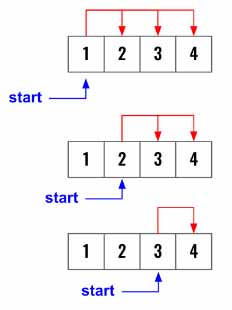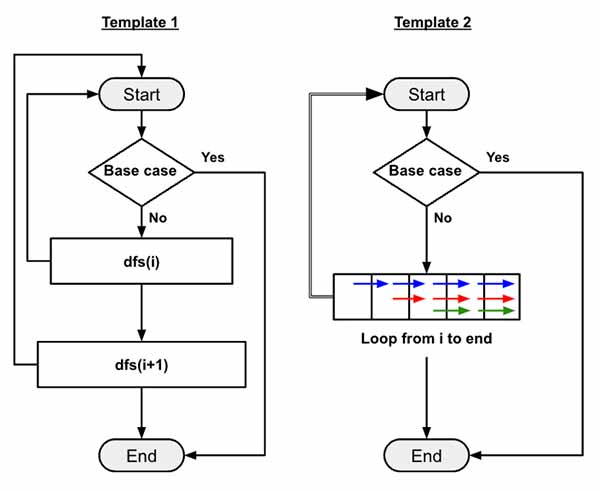Backtracking - Combinations
All diagrams presented herein are original creations, meticulously designed to enhance comprehension and recall. Crafting these aids required considerable effort, and I kindly request attribution if this content is reused elsewhere.
Difficulty : Easy
DFS, Backtracking
Problem
Given an integer array nums and an integer k, return true if it is possible to divide this array into k non-empty subsets whose sums are all equal.
Example 1:
1
2
3
Input: nums = [4,3,2,3,5,2,1], k = 4
Output: true
Explanation: It is possible to divide it into 4 subsets (5), (1, 4), (2,3), (2,3) with equal sums.
Example 2:
1
2
Input: nums = [1,2,3,4], k = 3
Output: false
Solution
A very simple problem to solve and almost similar to the Find Unique Binary String problem.
So from every index we need to start a dfs() to create combinations of length k using all 1 to n numbers.
This instantly guides us to use template 2 that we have already discussed here.
Define the output variable.
1
output = []
Then create the dfs() which will take the index and current path. Whenever the len(path)==k we can append the path to output.
1
2
3
4
def dfs(index, path):
if len(path) == k:
output.append(path.copy())
return
Now define the for loop to call dfs() recursively. Below for the right boundary, we need to include +1 as the numbers start from 1 and not 0.
1
2
3
4
for j in range(index,n+1):
path.append(j)
dfs(j+1,path)
path.pop()
At the end, call dfs() and return output.
1
2
dfs(1,[])
return output
Final Code
Here is the full code.
1
2
3
4
5
6
7
8
9
10
11
12
13
14
15
def combine(n, k):
output = []
def dfs(index, path):
if len(path) == k:
output.append(path.copy())
return
for j in range(index, n+1):
path.append(j)
dfs(j+1, path)
path.pop()
dfs(1, [])
return output

